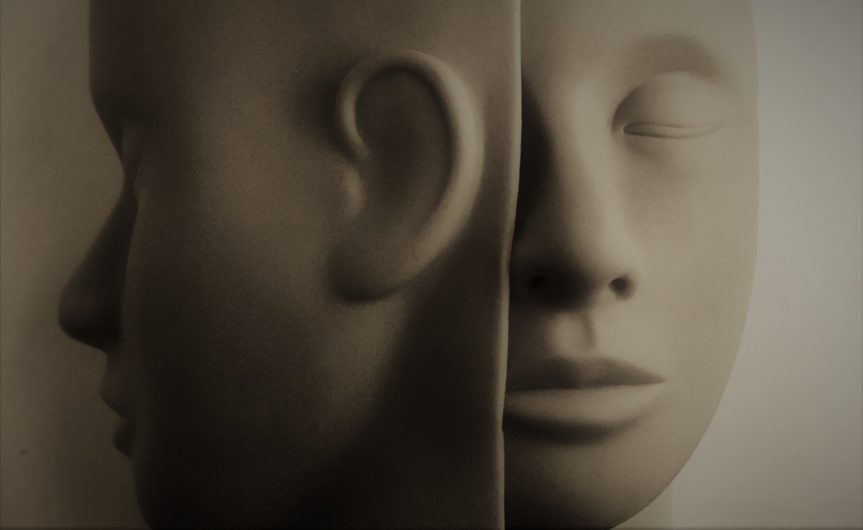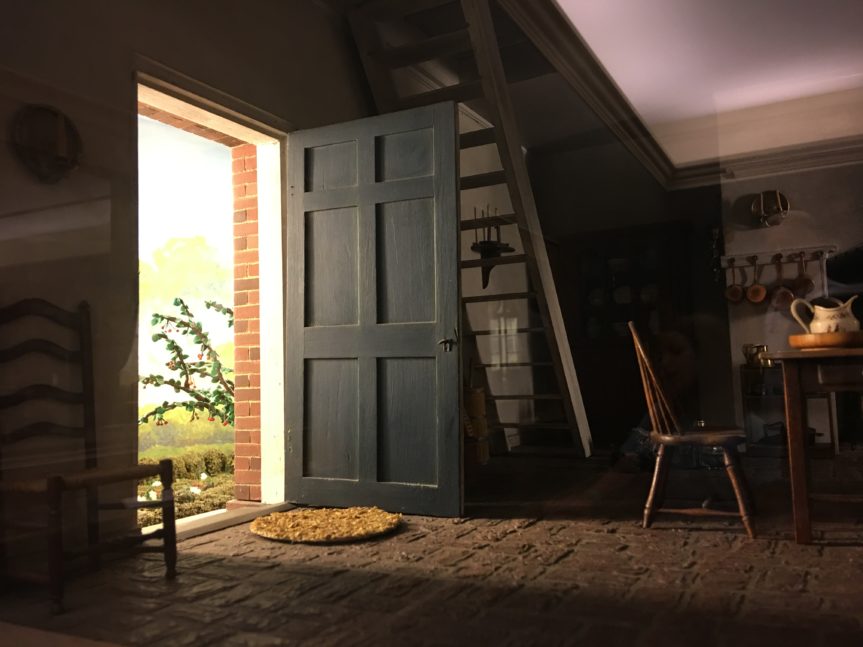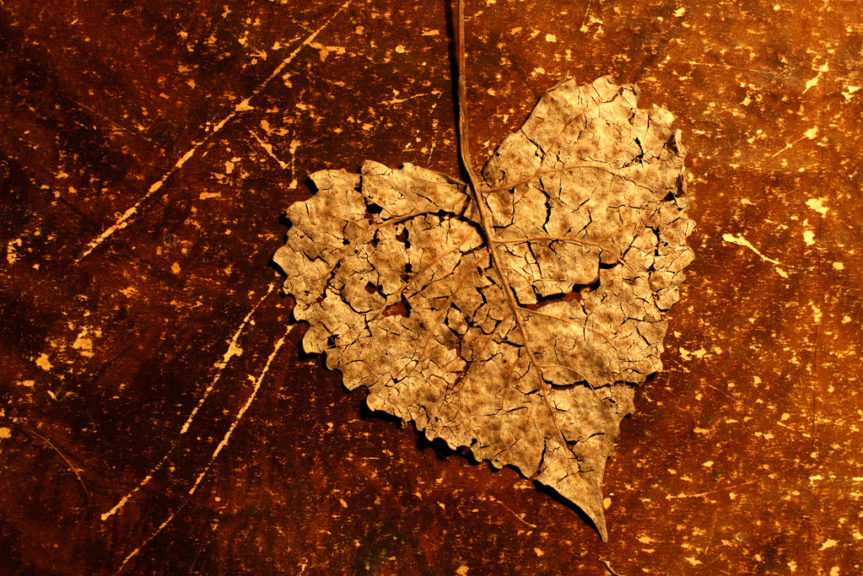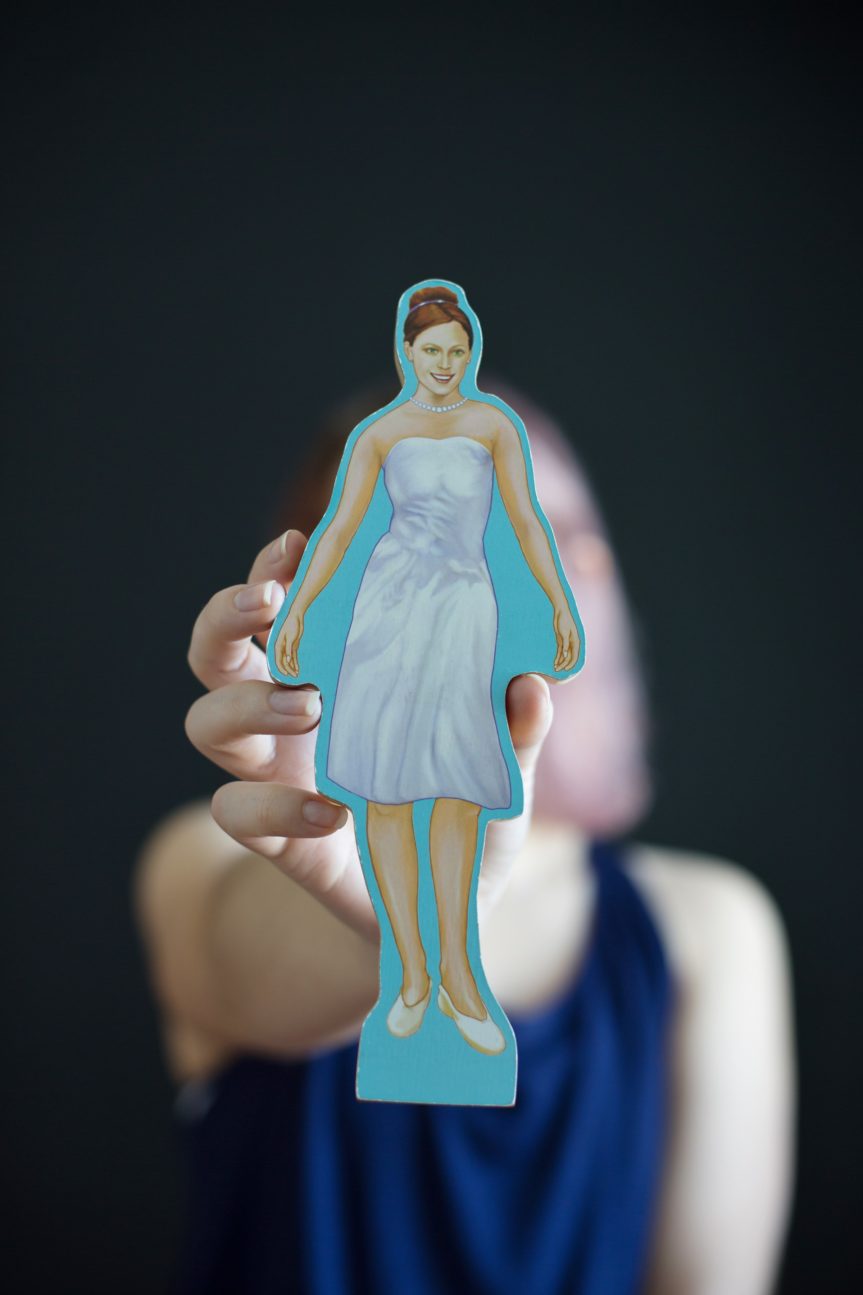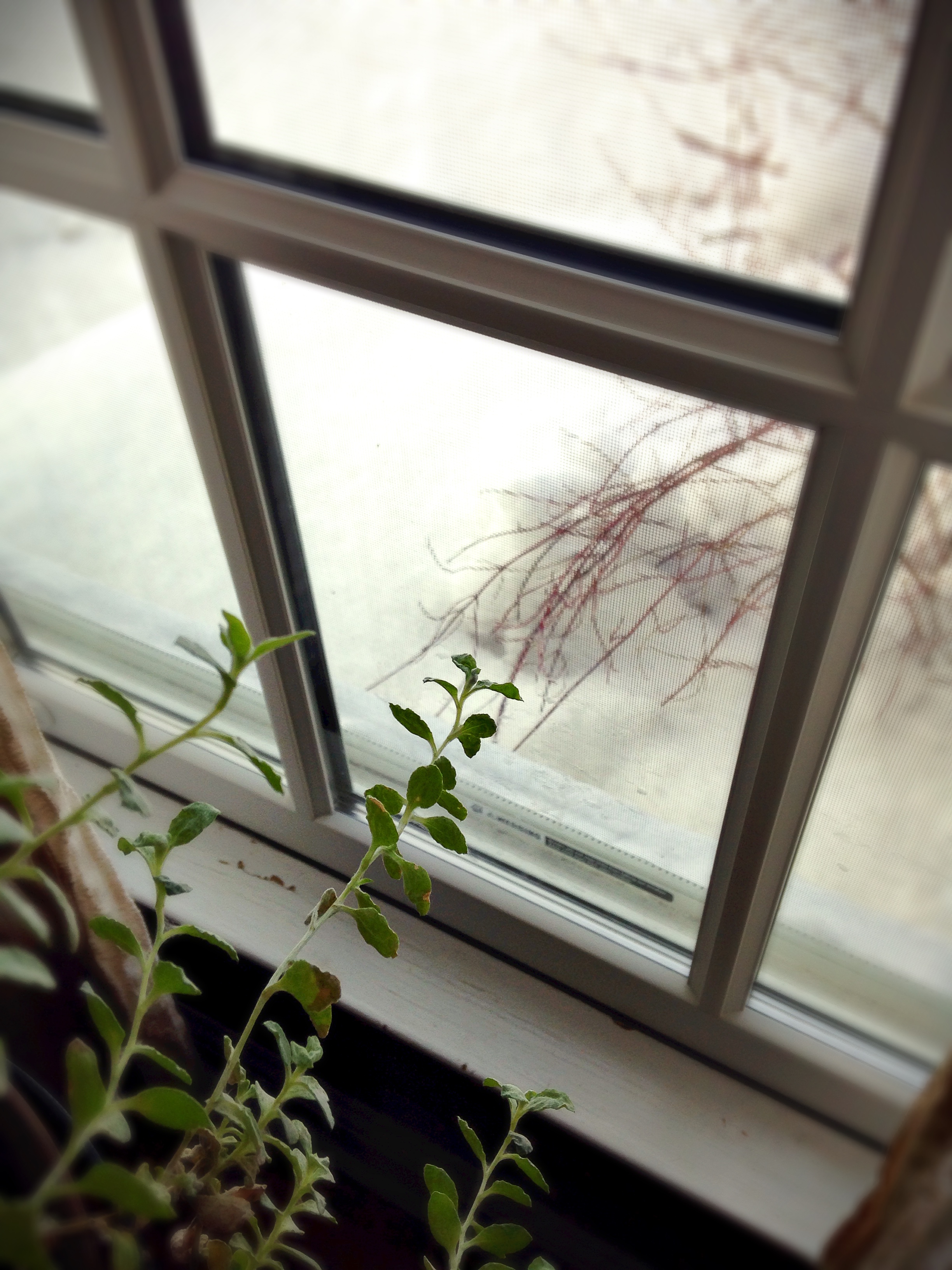Photo by Cristian Iohan Ştefănescu/Flicker
By Liane Kupferberg Carter
“Is there hidden treasure up here?”
My eleven-year-old son Jonathan followed me up the creaking wooden stairs to the unfinished third floor attic of my father’s house one Saturday summer afternoon. What was he imagining? A secret stash of Spanish gold coins? Purloined jewels? But I knew what he meant. As a child, this Moorish-style house built in the late 1920s had always exuded mystery to me too.
“Let’s hope,” I said.
My eighty-three-year-old father had decided it was time to move. My mother had died two years earlier, a week short of her seventy-second birthday, after a drawn-out wasting illness. We’d grown so accustomed to the hiss of her oxygen tank that after her death, the silence was jarring. My father had removed the chair lift, the bed pans, the medications, and medical equipment. He’d taken to wandering through rooms in search of things to straighten and fix.
My husband Marc, our sons, and I were moving soon too. I had the unenviable task of emptying two houses at the same time and finding homes for all the soon-to-be-discarded books, house wares, tools, and toys. But I was grateful for the distraction. It kept me from focusing too much on the pain of closing up the only childhood home I had ever known.
“Let’s start here,” I said and opened the door to the attic bedroom. It was painted Pepto Bismol pink, a color my parents had chosen to welcome my teenage cousin Carole. She’d come to live with us after her mother Frances died. One unshaded light bulb still hung from the ceiling. Jonathan and I sat on opposite sides of the full size bed. But the old mattress was so soft and deep that we sank and rolled against each other, clonking heads. Giggling, we hauled each other out.
I seated myself at a built-in plywood desk tucked under the dormer, dragged open a warped drawer and dug in. Not the hidden treasure Jonathan hoped for, but treasure to me: a stationer’s box of faded invitations for my parents’ 1951 wedding at a long-gone New York hotel. Birth announcements for each of my fifteen first cousins. An envelope with a return address that said only, “War Bonds.” Braille manuals. A round-tipped Braille stylus, oak tag, a masonite board, and a hinged metal slate I remembered playing with. My mother had made books for the visually impaired; in later years, she recorded audio books for The Lighthouse. Reading was her lifelong refuge. Even as a child of ten, in the midst of the Depression, she’d told me, she’d sit on the floor and read three-week-old newspapers as avidly as if they were the latest screen magazines. At ten she read books by Fitzgerald, Hemingway, and Woolf. “I didn’t understand most of it,” she once told me, “I just read whatever I could get my hands on.” Was that why she’d dedicated so much time to producing those Braille books? To share that love of reading she’d also imparted to me? I closed my eyes and ran my fingers over the indecipherable bumps.
Then I unearthed a landmine.
I stared at a pair of similar printed cards. The same date. The same time. The same cemetery. I’d been barely two that terrible day in August. Grandma Anna and Aunt Frances died within twenty-four hours of each other. Mother and daughter. Frances, from mysterious symptoms that might have been lupus; Grandma, of complications from diabetes. I hadn’t known there had been one funeral to bury them both.
I had only the dimmest visual memories of Grandma Anna, my dad’s mother: a kind, billowing woman in a wheelchair, an afghan concealing her lap. I was not allowed to climb on that lap. Only years later did I learn why: her leg had just been amputated. “But even on just one leg,” my mother marveled, “she balanced herself on crutches because she said she had to bake. It was Purim, she had hundreds of hamantashen to make.” Her absence was a phantom limb presence in my childhood. I had ached for the grandmother I didn’t get to know.
I looked at Jonathan. He was reading one of my old book reports. “This is pathetic, Mom,” he said. “How old were you when you wrote it?”
“Those were simpler times,” I said. “You must be bored if you’re reading that. Why don’t you go see if Grandpa will play Connect Four with you?”
My mother had adored her mother-in-law. Anna had filled some of the void her own mother’s early death from cancer had left. My mother’s mother Liane died long before I was born. I’d been named for her. I knew Grandma Liane only through my mother’s stories. A woman so kind and beloved in their Yonkers community that five hundred people had come to her funeral. The only picture I’d ever seen of my grandmother was printed on the back of a small round mirror that fit in my mother’s purse. It was a faded photo of a woman kneeling in a polka dot dress, embracing a small blonde child who grew up to be my brown-haired mother.
“Why don’t you have more pictures?” I’d asked. She never answered. It had frightened me to hear my mother’s sad voice, to see the shrouded look in her eyes, so I stopped asking. Years later, I learned that a year after my mother’s mother died, her father remarried a widow named Helen. Helen resented my mother’s presence in the house. She tried repeatedly to drive her out. One day, my mother returned home from work to find that Helen had taken my grandmother’s photo albums and her set of the Harvard Classic Books series. She’d dumped it all in a metal trash bin in the back yard. She’d incinerated it all and erased my mother’s childhood.
Because I was named for my grandmother, I’d grown up feeling that I was the repository of all my mother’s fantasies, hopes, and longings. I’d also believed that names and words had a dark magic presence. To name a fear was to breathe life into it, so I learned early on not to ask about the things that scared me most. My mother had been only seventeen when she lost her mother. I worried my mother would leave me too. Because I bore my grandmother’s name, I also feared I might die young the way she had. I remember lying in bed at night, searching my seven-year-old body for cancer lumps. It was a typical fear for any child, but I worried more than most. I knew firsthand that mothers could and often did die before their children were done needing them. I am now past sixty. My mother has been gone twenty years, I am still not done needing her.
I continued to search. Cleaning out, but hunting too. I found a metal box full of index cards, scribbled over in my mother’s backward slanting hand. I began to read. “Patrick Mulcahy: August 23, 1949: black skirt, Ohrbach’s; white ribbon blouse; movie: ‘On the Town’; dinner, Caffe Reggio.” Each card contained the name of a man she was dating, with relevant details about what she’d worn and where they’d gone. There were scores of cards. She’d once told me, “Back then I only had two skirts and three nice blouses. I washed and ironed all the time so I wouldn’t repeat an outfit from one date to the next.” She’d been a poor young woman, sleeping on her brother and sister-in-law’s sofa bed in a Stuyvesant Town apartment. She worked at an advertising agency high up in the Empire State Building. She’d been popular. My dad once told me, “I had to fight off half the male population of Manhattan to get her.”
“I encouraged that fantasy,” she said and laughed. I like to imagine her looking like Rosalind Russell in His Gal Friday, delivering snappy lines of dialogue and wearing great hats.
I marveled at the volume of what she had stashed away in the attic. The file cabinets were crammed. My grade school loose-leaf notebooks, still bulging with yellowing compositions. Forty years’ worth of cancelled checks. A clever musical parody she wrote of The Mikado. Large, rolled-up photos in cardboard tubes. I unfurled them, and studied the panoramas of dinner dance crowds, women in taffeta gowns and rhinestone studded eyeglasses, balding men proud and portly in their tuxes. I recognized many faces, people who had once looked so old to me. I was now the same age, probably even older, than they had been when those photographs were taken.
I slid open the warped closet door and found her emerald green strapless satin evening gown. I’d loved to dress up in it. I swam in it then. What would it feel like to try it on now? But the gown sagged under the weight of its own whale boning. The glamour was gone.
Instead, I stepped into the long closet, slid the door shut, and stared at the pinpricks of light at the far end. One day Peter O’Leary, the imaginative older boy of five who lived next door, locked us into the closet together, pointed out the holes of light in the far wall, and said, “Those are witch’s eyes! She’s going to get us!” I remembered my terror when I couldn’t open the door. How I’d screamed and screamed until my mother found us and comforted me.
Slowly I began to fill large black plastic trash bags. In went the piles of torn pink bedding thick with dust; files full of raffles and receipts from the temple bazaars my mother used to run; rotting suitcases, the seams infested with tiny, larval debris that made me shudder.
“I wish I could be as sure of other things in this world as the fact that the housework will still be here long after I’m gone,” she often said.
I thought about the essential unknowability of my mother. The mysteries of our parents’ inner lives. Did she mean to leave me this tantalizing trail? More likely, she’d assumed she still had time left to sift and to sort the half-written stories, the faded photos, the letters from long-gone lovers. Why had she kept the boyfriend index cards? The snippets of lace and cloth? The feathered bits of millinery? The Braille books? Why had she valued these items above others? What had these totems meant to her?
I will never know for sure.
Her stepmother had destroyed the talismans of her own childhood. Had she preserved finite, fragile clues, bits of an adult life she’d cherished, to give me what she hadn’t had? Wanted me to know her in ways she’d been denied knowing her own mother? Reassembling these shards from my mother’s life was an emotional archaeology.
And then, finally, I found what all along I must have been seeking without even knowing. It was in a stationery box filled with unsent greeting cards. A note written to my husband Marc from my mother, on the eve of our wedding. I had seen it when she’d given him an antique silver Kiddush cup. Marc must have dropped the note during the excitement of that evening. I’d forgotten it. My mother had saved it.
The note said simply, “May Liane give you as much joy as she has given us.”
Did she know that I would find it one day? How much comfort I would draw from it? Could she have known that note would be what I’d treasure most? I’d like to think so.
Joy. I’d given her that.
And in return, she anchored me. The home she created was tender and safe. It is a lifetime since I lost her, but I still bask in the warmth of her sustaining love.
•••
LIANE KUPFERBERG CARTER is a nationally known writer and advocate for the autism community. Her memoir, Ketchup Is My Favorite Vegetable: A Family Grows Up With Autism, is a winner of the 2017 American Society of Journalists and Authors Outstanding Book Award. Her articles and essays have been published in the New York Times, Washington Post, Brain Child, Literary Mama, The Manifest-Station, and Brevity. www.lianekcarter.com

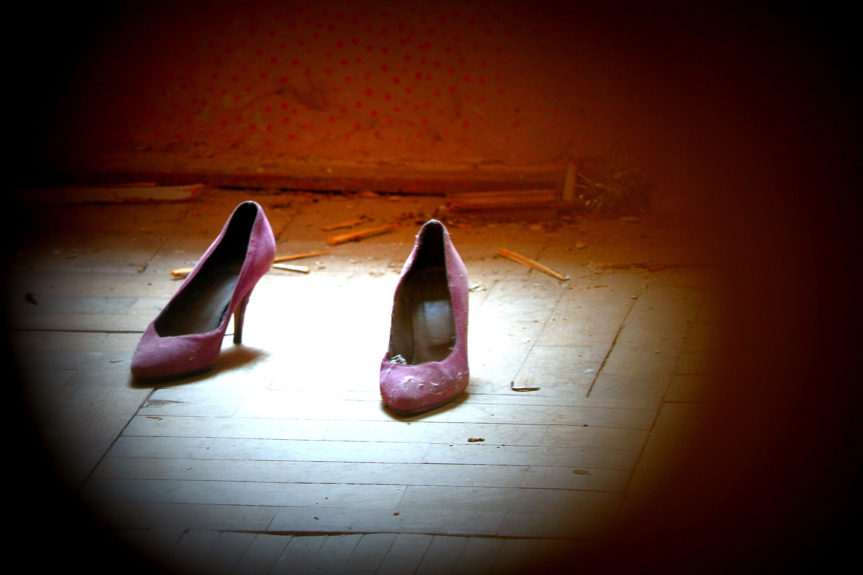
 Follow
Follow

